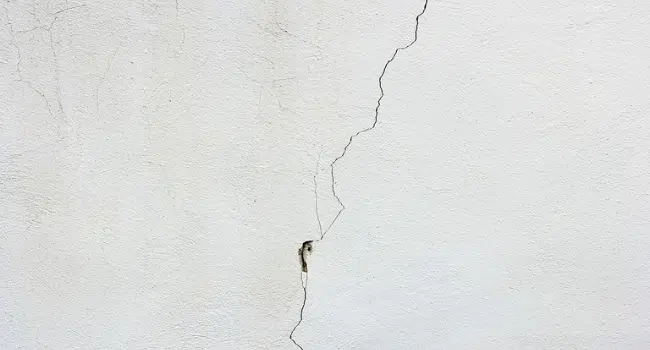Foundation cracks are a great threat to your house. Though starting from just a minor crack, they eventually lead to the destruction of the whole infrastructure of your home.
Foundation cracks, though, appear to be a diminutive term, but in reality, they can do a lot more than big damages to your house. Therefore, it is necessary to either take preventive measures or repair the foundation cracks at the very moment before the problem starts to get bigger. But what’s more important is to understand their types, because only then you’ll be able to present a valuable solution.
Not all foundation cracks are the same, and not all of them are treated the same way. There are two basic types of foundation cracks, i.e., structural and non-structural. Both carry their own distinct characteristics and unique solutions. Therefore, you have to understand both of them separately so that you can identify which type of crack your foundation has and the possible solutions to treat them, so let’s begin.
The Difference between the Two
Features
First let’s have a look at the basic features and characteristics of the two:
Structural
Structural cracks are the most severe cracks that adversely affect the building’s strength and are found on the main structure that depends upon the foundation directly.
- These cracks are often wider than 1/9 inches and tend to spread even wider as time passes.
- These cracks are often found in these appearances: stair-steps, horizontal cracks in foundation walls, lots of vertical cracks opposite each other, cracks running down from ceiling throughout the down wall, large diagonal cracks.
Non-structural
Non-structural cracks are not that severe and carry lesser threats as compared to the former ones.
- These cracks bear minimal size, usually not more than that of 1/9 inches. These cracks usually don’t grow or spread. However, it is possible in rare circumstances.
- Non-structural cracks are often thin hair-like vertical cracks that extend from the wall to the footing.
- They are also found as a thin crack in only one block of cement or brick.
Causes
Causes for both the structural and non-structural foundation cracks differ. Most of the time, the severity of both the cracks also depends upon the reason that caused them.
Structural
Structural cracks are often formed due to natural disasters like earthquakes, swelling of the soil, overloading, and extreme temperature.
Non-structural
The common cause of non-structural cracks is concrete settling. When the house is newly built, its cement undergoes the process of settling during which expansion and contraction occur to adjust with the environment. Hence the cracks are formed.
Solutions
Both structural and non-structural foundation cracks come with differing solutions, depending upon their intensity.
Structural
Repairing structural cracks is a pretty complicated process and requires the help of a professional contractor. It features a series of long approaches, including epoxy injection, stitching, and filling.
Non-structural
Non-structural cracks, on the other hand, are easy to repair and can be easily done by yourself. You only have to pressure inject a sealant resin, and you’ll be good to go.
Which One is More Severe and Dangerous
Depending upon the intensity, the structural foundation cracks appear to be more threatening and dangerous as compared to the non-structural one as the latter directly affects the foundation walls of the house and weakens the infrastructure on the whole.
Only an expert knows how to deal with structural wall cracks in the best manner. So,hire a contractor who can efficiently perform Greenville structural wall repair task.
Read More on KulFiy:
Make Basement Waterproofing Services Affordable
